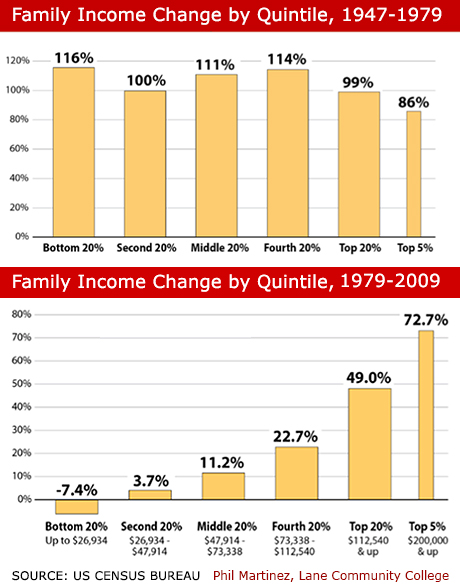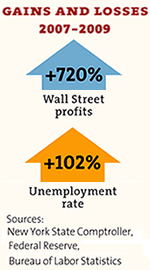


This page will be updated the next time the course is taught.
Timeline: The Modern Environmental Movement, The American Experience (PBS/WGBH).
Jack Lewis, "Looking Backward: A Historical Perspective on Environmental Regulations" (EPA Journal, March 1988).
Rachel Carson, Silent Spring (Boston: Houghton Mifflin, 2002), excerpts.
Frederick Buell, “The Decade of Crisis,” preface to From Apocalypse to Way of Life: Environmental Crisis in the American Century (New York: Routledge, 2003).
Background: R. Crumb, "A Short History of America." (pdf)
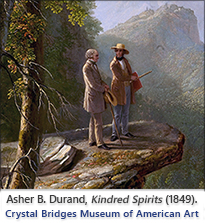
By examining how issues of race, class, and gender have shaped the American legal and political system, this course explores the origins of present-day political problems, ideas, and trends. Topics covered include the ratification of the Constitution, the evolution of industrial capitalism, the causes and consequences of the Civil War, the campaign for woman suffrage, the Great Depression, the civil rights and women's rights movements, de-industrialization, the war on terror, and the general loss of faith in government that has characterized American politics in recent decades. As we move into the present, we will pay particular attention to the way these aspects of American politics play into ongoing efforts to address climate change, the defining political challenge of our time.
Course Objectives: At the end of this course, students should come away with a general understanding of the legal principles, social forces, and economic factors involved in policy development, as well as the role of political traditions, assumptions, and beliefs in determining the scope of political change.
Unit 2: Slavery, Industrial Capitalism, and the Emergence of Environmental Thought
Aaron Sachs, "Energy in American History," Oxford Research Encyclopedia of American History.
Henry David Thoreau, "Slavery in Massachusetts," a speech delivered in Framingham, 1854, Mapping Thoreau Country.
Christopher Hayes, "The New Abolitionism," The Nation, May 12, 2014.
Wen Stephenson, "Civil Disobedience and Our Radical Moment," Thoreau Society Blog, November 1, 2013.
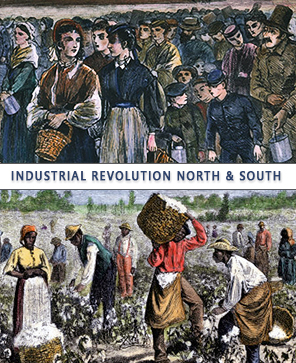

Alexander Hamilton, "Concerning Dangers from Dissensions Between the States," Independent Journal, November 14, 1787, Federalist #6.
James Madison, "The Union as a Safeguard Against Domestic Faction and Insurrection," New York Packet, November 23, 1787, Federalist #10.
Gordon Lloyd, "Introduction to the Anti-Federalists," Teaching American History.org.



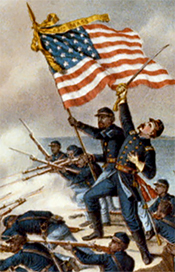
2: American Government Before & After the Civil War
Henry David Thoreau, "Slavery in Massachusetts" (1854).
Dred Scott v. Sandford (1857), ruled that African-Americans have no constitutional rights.
Plessy v. Ferguson (1896), upheld the doctrine of 'separate but equal' in public accommodations.
Plessy v. Ferguson, excerpts, National Humanities Center.
W.E.B. Dubois, "Of Our Spiritual Strivings" and "Of the Dawn of Freedom, The Souls of Black Folk (1903).
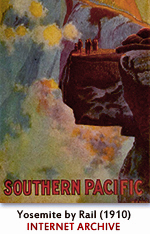
Unit 3: Nature as Refuge: Rise of the Conservation Movement in the U.S
Dorceta Taylor, "Race, Class, Gender, and American Environmentalism," U.S. Dept. of Agriculture, Forest Service (2002).
Anne E. Chapman, "Nineteenth Century Trends in American Conservation," National Park Service.
Susan E. Gallagher, "Nature as Destination: Thoreau's Contributions to Tourism on Cape Cod," Mapping Thoreau Country: Tracking Henry David Thoreau's Travels in Massachusetts.
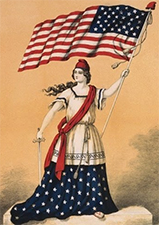
Bradwell v. Illinois (1873), upheld exclusion of women from legal practice.
Muller v. Oregon (1908), permitted sex discrimination in employment.
Muller v. Oregon: Contextual Summary, Oregon Encyclopedia.
Patricia Ireland, "Women's Less Than Equal Rights under the U.S. Constitution," NOW.org.
Unit 4: From Preservation to Protection: The Evolution of Environmental Policy in the 20th Century
Lorus and Margery Milne, "There's Poison All Around Us Now," Review of Rachel Carson's Silent Spring, New York Times, September 23, 1962.
NEPA, the National Environmental Policy Act (1969), HistoryLink.org.
"The Guardian: Origins of the EPA," Environmental Protection Agency.
Background: Mark Stoll, Rachel Carson's Silent Spring: A Book that Changed the World (Digital Exhibit), Environment and Society Portal.


Lochner v. New York (1905), held that the U.S. Constitution prohibits regulation of labor.
Theodore Roosevelt, "The New Nationalism" (1910).
Eugene V. Debs, "The Socialist Party" (1912).
Franklin Delano Roosevelt, "First Inaugural Address" (1933).
Huey Long, "Every Man a King" (1934).
"Every Man a King," campaign song. (recording)
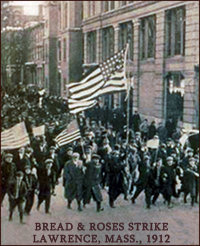
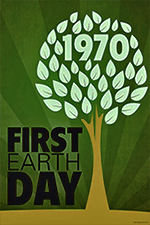
Unit 5: Environmental Regulation Comes of Age
"A Brief History of Pollution," National Oceanic and Atmospheric Administration (NOAA)
"A Brief History of the Clean Water Act," NOW, PBS.
"Air Pollution and the Clean Air Act," EPA.
Sue Jennings, "Celebrating Forty Years of the Wild and Scenic Rivers Act," George Wright Forum (2008).
Joel A. Mintz, "EPA Enforcement of Comprehensive Environmental Response Liability Act (CERCLA): Historical Overview and Recent Trends," Southwestern Law Review (July 11, 2012).

5: From the New Deal to the Great Society

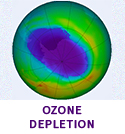
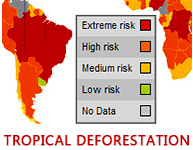

Thom Yantel, "Capitalism Loses Its Hat," Overview of the New Deal, Kent State University
Eric Foner, excerpt, "The Second New Deal," Give Me Liberty: An American History (Inkling).
Richard Walker, "The New Deal in Brief," (2011) The Living New Deal, University of California Berkeley.
Thom Yantel, "The Great Society: Idealism Meets Realism," Overview of the Great Society, Kent State University.
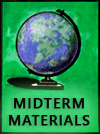

Unit 6: Deindustrialization & Deregulation: Environmental Policy in and Beyond the Reagan Era
James Ridgeway, "Pollution Is Our Most Important Product," The Nation, November 7, 1981.
Alice Mah, "Lessons from Love Canal: Toxic Expertise and Environmental Justice," Open Democracy, August 7, 2013.
Robert Bullard, "Race, Class, and the Politics of Place," Chapter Two, Dumping in Dixie: Race, Class, and Environmental Quality (Boulder: Westview Press (1990).
6: The Great Society in the Civil Rights Era
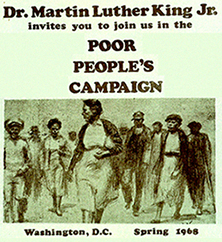
Lyndon Baines Johnson's "Great Society," American President: A Reference Resource, Miller Center.
Bayard Rustin, "From Protest to Politics: The Future of the Civil Rights Movement," Commentary, February 1965.
James T. Patterson, "The Civil Rights Movement: Major Events and Legacies," History Now, Gilder-Lehrman Institute.
Unit 7: Environmental Politics & Policy in the Age of Climate Change
Susan E. Gallagher, "Policy Challenges," and "Political Economy," teaching and learning resources created for UMass Lowell's Climate Change Initiative.
Naomi Klein, "Capitalism vs. the Climate," The Nation, November 28, 2011.
More to come...October, 2016.
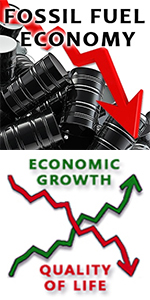


The Second American Revolution: Reaganomics, Ronald Reagan Presidential Library.
John Russo and Sherry Lee Linkon, "The Social Costs of Deindustrialization," Center for Working-Class Studies, Youngstown, Ohio, 2009.
Sara S. McLanahan and Erin L. Kelly, "The Feminization of Poverty: Past and Future," Network on the Family and the Economy (Princeton University), no date.
Michael Kimmel, "America’s Angriest White Men: Up Close with Racism, Rage and Southern Supremacy," Salon, November 17, 2013.
Dedrick Muhammad, "The Reagan Era: Turning Back Racial Equality Gains," Huffington Post, March 11, 2013.
Robert Pollin, "Anatomy of Clintonomics," New Left Review, May-June 2000.

8. The Politics of Inequality in the 21st Century
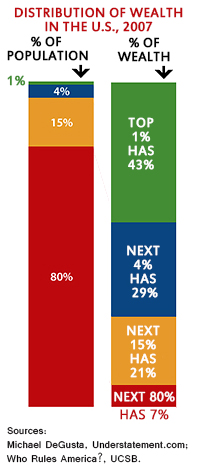
Daniel Gross, "Income Inequality Writ Larger," New York Times, June 10, 2007.
Timothy Noah, "The United States of Inequality," Slate, September 14, 2010.
Sabrina Tavernise, "Education Gap Grows Between Rich and Poor, Studies Say," New York Times, February 9, 2012.
Matt Bai, "How Much Has Citizens United Changed the Political Game?," New York Times Magazine, July 17, 2012.
Alexander E.M. Hess and Vince Calio, "10 States Where Income Inequality Has Soared," Time Magazine, February 28, 2014.
Daniel J. Mitchell, "In Defense of "Trickle-Down" Economics," Forbes Magazine, December 1, 2011. (Follow embedded links.)
Matt Mitchell, "Trickle-Down Economics: Does Anyone Actually Believe In It?," Mercatus Center, George Mason University, June 1, 2012.
Ashley Dawson, "Climate Justice: The Emerging Movement against Green Capitalism," South Atlantic Quarterly; Spring 2010.
Mark Engler and Paul Engler, "Climate of Change," Dissent, Summer 2013.


